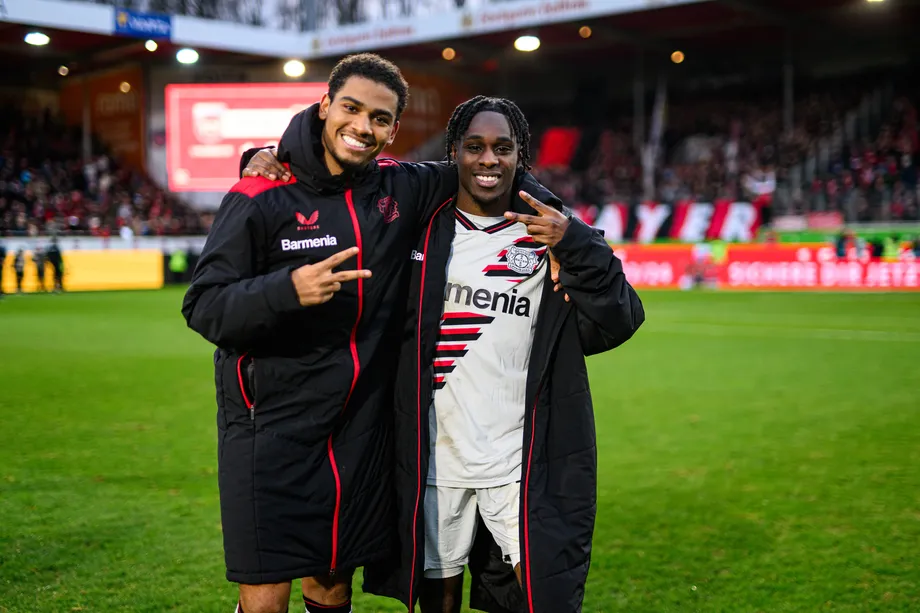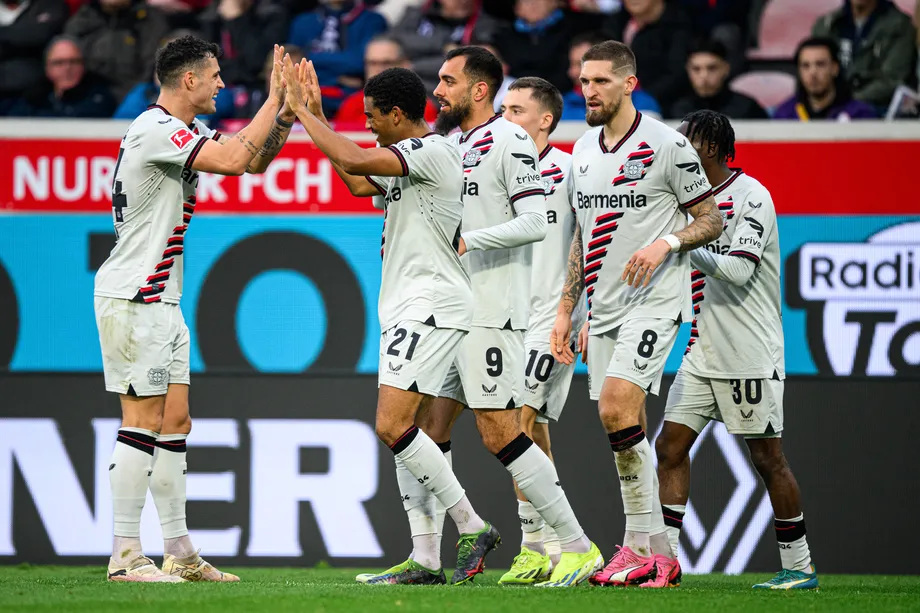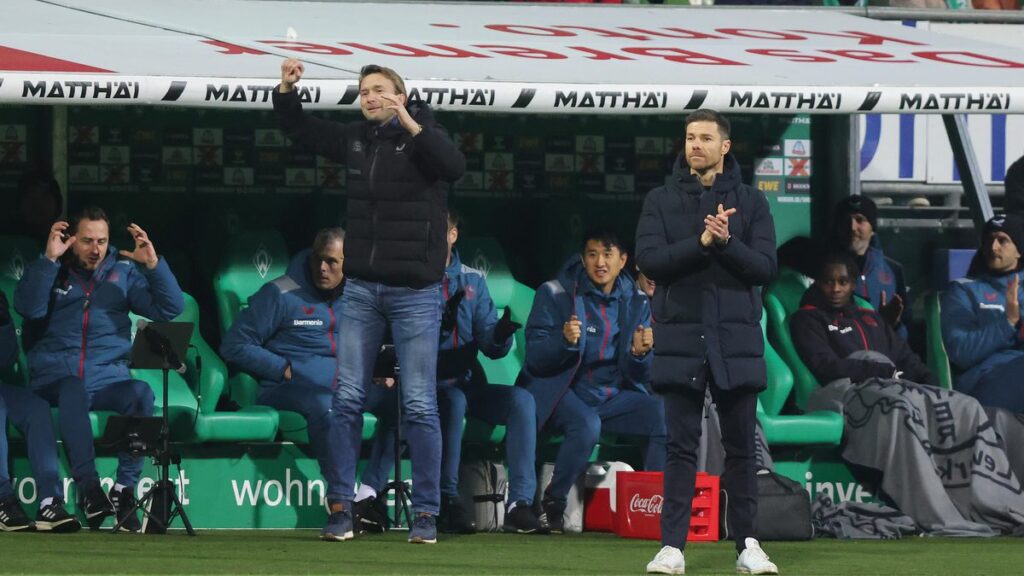Bayer Leverkusen has emerged as a dominant force in the footballing world, boasting an impressive streak of 33 matches undefeated across all competitions, a feat unparalleled by any German club. With their sights set on potentially dethroning Bayern Munich’s long-standing reign of Bundesliga championships, Leverkusen’s brand of captivating and commanding football has garnered widespread acclaim. Their continued participation in the DFB-Pokal and the Europa League keeps the possibility of a double or even a treble within reach.
What makes Leverkusen’s achievements all the more remarkable is their ability to thrive despite operating with resources that pale in comparison to those of traditional powerhouses like Bayern Munich and Borussia Dortmund. This begs the question: how have they managed such unprecedented success? If Dortmund can decipher the formula behind Leverkusen’s rise, they may be able to replicate it in their own pursuit of excellence.
While much attention has been directed towards manager Xabi Alonso, with a narrative suggesting that he single-handedly transformed a decent squad into footballing superstars, it is crucial to acknowledge the instrumental role played by Leverkusen’s Sporting Director, Simon Rolfes, and his dedicated staff. While Alonso’s coaching prowess undoubtedly deserves commendation, attributing Leverkusen’s success solely to him overlooks the years of meticulous planning and hard work invested by the club’s management.
A closer examination of Leverkusen’s strategic decisions over the years unveils a deliberate and calculated approach that has culminated in their current extraordinary season. Here are some tangible lessons that Dortmund can glean from Leverkusen’s management tactics, which have been pivotal in their remarkable journey to success this season:
Investing in potential can pay massive dividends
In a 2022 interview with Bundesliga.com, Bayer Leverkusen Sporting Director Simon Rolfes elaborated on his managerial approach, delineating three core tenets: Atmosphere, Development, and Performance. Like numerous other successful sporting departments in recent years, Leverkusen has fully embraced analytics, leveraging the resources provided by the Bundesliga’s partnership with Amazon Web Services (AWS). This analytical approach has proven particularly beneficial in the scouting department, with Rolfes attributing the identification of signings such as Piero Hincapie and Jeremie Frimpong to data-driven insights.
The fruition of Leverkusen’s transfer strategy is now evident, aligning with the principles articulated by Rolfes in the aforementioned interview. Notably, Leverkusen prioritizes players with immense potential, even if they may not immediately fulfill expectations upon signing. This forward-thinking approach has resulted in significant dividends over the long term. Since assuming the role of Sporting Director in 2018, Rolfes has been instrumental in acquiring key players for Bayer Leverkusen, many of whom have become integral components of the squad managed by Xabi Alonso.

While players like Frimpong, Odilon Kossounou, and Edmond Tapsoba were not unknown entities prior to joining Leverkusen, their status as promising prospects necessitated substantial financial investment from the club. Nevertheless, the subsequent increase in their transfer values underscores the astuteness of Leverkusen’s recruitment strategy. Leverkusen now boasts a squad replete with talented individuals in their prime, a testament to the club’s foresight in securing their services early on.
Comparatively, Borussia Dortmund has adopted a similar transfer strategy in previous years, notably with signings like Jadon Sancho, Erling Haaland, and Jude Bellingham. However, Dortmund’s approach has primarily been financially driven rather than focused solely on sporting considerations. Dortmund typically invested the proceeds from player sales into acquiring established players, albeit at considerable expense, whose potential ceiling did not match those of Leverkusen’s recruits. This contrast highlights Leverkusen’s emphasis on long-term player development and strategic recruitment over short-term financial gains.
Player development is worth the growing pains
One of the fundamental aspects of Bayer Leverkusen’s sporting strategy, as outlined by Rolfes in the referenced article, is focused on player development. Leverkusen has made substantial investments in youth academies, coaching staff, and has extended this developmental approach to their senior squad. Notably, Leverkusen actively nurtures and provides significant playing time to young talents, demonstrating their commitment to fostering growth within their ranks. Even under the previous management of Gerardo Seoane, Leverkusen consistently entrusted important minutes to emerging talents such as Piero Hincapié, Florian Wirtz, Jeremie Frimpong, Moussa Diaby, Kossounou, among others. Despite encountering fluctuations in performance over recent seasons, Leverkusen’s commitment to providing opportunities for young players has proven invaluable as these individuals mature.
This developmental philosophy was once a hallmark of Borussia Dortmund’s approach, but there are concerns that this mentality may be diminishing. Players like Gio Reyna, Youssoufa Moukoko, and Jamie Bynoe-Gittens, who are arguably among the most promising talents at Dortmund, have been afforded limited opportunities, often receiving only sporadic starts. While Dortmund’s prioritization of Champions League qualification is understandable, there is a risk that by not affording these young players regular playing time, their development may be hindered. Embracing the short-term challenges that may arise from integrating young talents into the squad could ultimately yield long-term benefits by allowing them to reach their full potential.
Scoring depth means the world
An intriguing observation lies within Bayer Leverkusen’s current position as league leaders in the Bundesliga, boasting an impressive record of 19 wins, 0 draws, and 4 losses. Surprisingly, despite their dominance, the club does not currently have a representative among the top five goal scorers in the league. Victor Boniface emerges as their leading goal scorer with ten goals, trailing behind Niclas Füllkrug of Dortmund by just one goal.
Nevertheless, Bayer Leverkusen compensates for the absence of a prolific striker with remarkable scoring depth across their squad. While Boniface contributes significantly, the team benefits from a multifaceted offensive approach. Notably, players such as Alex Grimaldo with eight goals, Jeremie Frimpong with seven, Jonas Hofmann and Florian Wirtz with five each, and even center-back Jonathan Tah with four goals bolster the team’s offensive prowess. The striking contrast is evident when considering Tah’s role as a center-back; his goal tally matches that of Dortmund’s Marco Reus, who operates in an attacking capacity.

The wealth of scoring threats dispersed throughout the team poses a formidable challenge for opposing defenses. By spreading the offensive burden across multiple players, Bayer Leverkusen ensures that defenses cannot solely focus on neutralizing a single individual. Conversely, when facing Dortmund, containing Donyell Malen and Niclas Füllkrug may effectively nullify the majority of their attacking threat.
You need a coach to bring it together
Simon Rolfes has meticulously assembled an exceptional squad, yet to elevate his team to greatness, he required a leader. While possessing cutting-edge technology and powerful engines is akin to constructing a state-of-the-art airplane, without a skilled pilot at the helm, it remains merely an expensive artifact. In this analogy, Alonso has proven to be the indispensable pilot for Leverkusen this season. He has maximized the potential of Rolfes’ squad, extracting every ounce of quality, resulting in impeccable outcomes.
Under Alonso’s guidance, Leverkusen has showcased an exhilarating style of play. Their relentless pressing and seamless teamwork are a source of inspiration. Alonso adeptly manages the growing attention surrounding Leverkusen’s accomplishments, ensuring the team maintains a high level of motivation while avoiding the pitfalls of arrogance often encountered by clubs contending for titles.
It is evident that Leverkusen’s acquisition of Alonso has been fortuitous. The timing aligned perfectly, offering Alonso the opportunity to step up from Sociedad B while providing Leverkusen with a capable coach. Leverkusen seized this opportunity eagerly, welcoming Alonso with open arms. Now, they boast a manager who, although destined for greater prospects, is orchestrating one of the most remarkable Bundesliga campaigns in history.
In stark contrast, Edin Terzic’s tenure presents a different narrative. While he possesses certain coaching strengths, such as motivating players for significant matches, overall, his performance this season has been profoundly disappointing. Under his leadership, Dortmund’s most promising young talents have been marginalized, with limited playing time and sporadic appearances. Dortmund’s style of play under Terzic has been characterized by a lackluster, defensive approach, occasionally bordering on timidity. Additionally, the transfers endorsed by Terzic have failed to yield significant improvements, stagnating the team’s progress. If Dortmund aspires to achieve greatness akin to Bayern or Leverkusen in the current season, Terzic appears ill-suited for the task at hand.
Conclusion
The remarkable record of 19 wins, 0 draws, and 4 losses achieved by a team cannot be attributed solely to one factor; rather, it represents the culmination of various elements aligning favorably. Leverkusen’s success owes much to the effective signings they have made and the timely appointment of a coach like Alonso, coinciding with the club’s need. However, such fortune did not materialize arbitrarily; it stems from a meticulously crafted long-term strategy. Even Simon Rolfes, Leverkusen’s sporting director, may not have anticipated such unprecedented success, but in retrospect, the club’s actions over the years reflect a deliberate pursuit of this outcome. The impressive trajectory of Leverkusen serves as a valuable lesson for other clubs, such as Dortmund, urging them to elevate their performance to remain competitive in the long run.


